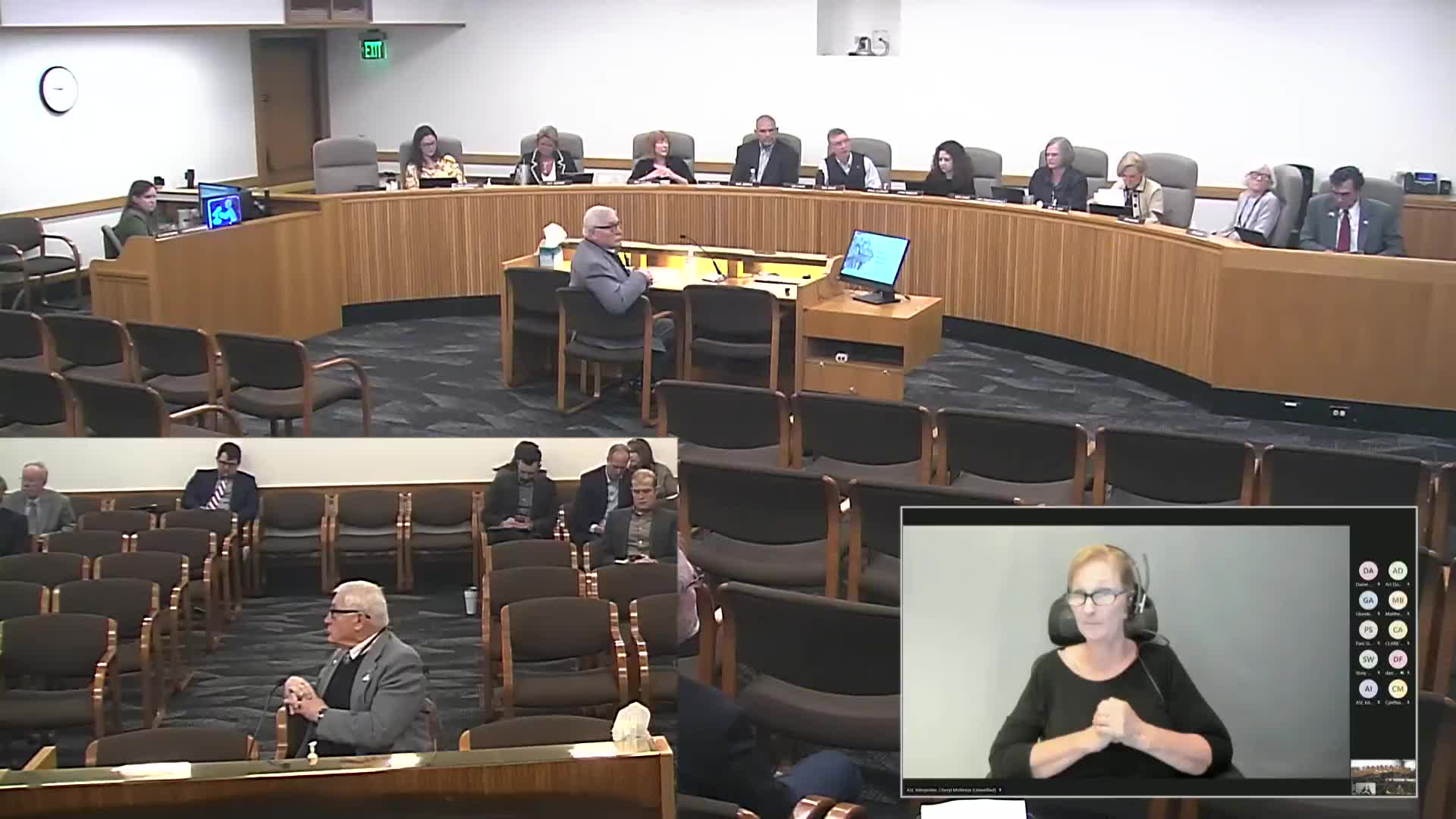Mapleton Water District seeks legislative amendment to address sewer system emergency
March 24, 2025 | Agriculture, Land Use, Natural Resources, and Water, House of Representatives, Committees, Legislative, Oregon
Thanks to Scribe from Workplace AI , all articles about Oregon are free for you to enjoy throughout 2025!

This article was created by AI using a video recording of the meeting. It summarizes the key points discussed, but for full details and context, please refer to the video of the full meeting. Link to Full Meeting
Arthur Donnelly, Vice Chair of the Mapleton Water District Board of Commissioners, presented the bill, emphasizing the urgent need for legislative action due to the deteriorating condition of the Mapleton sewer system. He highlighted that while the community is not facing an immediate disaster like a forest fire, the slow decline of the sewer infrastructure poses significant risks to public health and the local economy. Donnelly noted that without intervention, the community could lose its retail core, as businesses rely on the sewer system for waste management.
Vanessa Cornwall, representing Lane County, echoed Donnelly's sentiments, advocating for the bill and its amendment. She explained that the proposed changes would facilitate a merger between the Mapleton Water District and the Commercial Area Owners Association, allowing for better infrastructure investment and operational efficiencies. Cornwall stressed that this legislative fix would not only benefit Mapleton but could also serve as a model for other districts facing similar challenges.
However, concerns were raised by Daryl Fuller of the Oregon On-site Wastewater Association, who expressed apprehension about the implications of the bill. He pointed out that the proposed amendment simplifies the criteria under which a water district can take on sanitary authority, potentially setting a precedent for future legislative changes. Fuller cautioned that the lack of stringent requirements could lead to unintended consequences for water management across the state.
The committee members engaged in discussions regarding the necessity of the bill and the implications of altering existing statutes. Questions were raised about the previous criteria for granting sanitary authority and why they were deemed inadequate in this case. The committee agreed to seek further clarification on these points.
As the meeting progressed, the committee moved on to other agenda items, including a public hearing on House Bill 3596, which addresses wildlife management issues. The session concluded with a commitment to continue discussions on the various legislative proposals affecting Oregon's water and natural resource management.
Overall, the meeting underscored the urgent need for legislative action to address the challenges faced by the Mapleton community while also highlighting the complexities and potential ramifications of changing existing water management laws. The committee plans to reconvene to further explore these issues and their broader implications for the state.
Converted from House Committee On Agriculture, Land Use, Natural Resources, and Water 03/24/2025 8:00 AM meeting on March 24, 2025
Link to Full Meeting
Comments
View full meeting
This article is based on a recent meeting—watch the full video and explore the complete transcript for deeper insights into the discussion.
View full meeting
